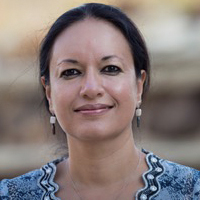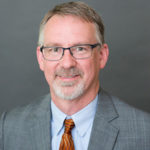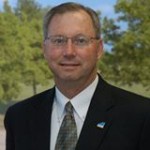Nyla Khan
Professor at Rose State College
What drew you to be a part of the OKGIT?
I was drawn to be a part of the OKGIT because I consider it important to delve into concrete and viable ways in which citizens on both sides of the aisle in this country, Republican and Democrat, can reestablish their ties with dialogue, diplomacy, and forging global connections. My credo is global exchange, and a global system that recognizes diversity and human rights.
Tell us about your international experience and how that is reflected in your life and work in Oklahoma.
As an educator expanding the awareness of audiences in Oklahoma on issues of social justice, gender equity, and rule of law in South Asia, my goal is to engage in reflective action working with diverse cultural and social groups questioning the exclusivity of cultural nationalism, the ever-increasing dominance of religious fundamentalism, and the irrational resistance to cultural and linguistic differences. My unrelenting faith in the critical focus that education can provide motivates me to build bridges across racial, political, and ideological divides.
Working and living in Oklahoma has taught me that community is the courage to bridge divides and to pave the way for the education of the younger generation, which is the only viable response to ignorance and bigotry. Community is the openness to dissent, and differences of opinion, which is true courage.
Why is it important for you that Oklahoma has strong international ties?
It is or, at least, should be inconceivable, in the day and age of a global economy, to spurn the concepts of reason, rationality, and political and moral ethics. The perpetuation of a politics that creates and emphasizes cultural myopia and in a society as diverse as that of Oklahoma would be the bane of our existence. Nurturing civil society groups in Oklahoma, like chambers of commerce, the youth, educators, musicians, artists, public speakers, and activists that bridge racial, ethnic, and religious divides is a prerequisite for the effective and legitimate functioning of institutions.
Dr. Nyla Ali Khan is a professor at Rose State College, Midwest City, OK and taught as a Visiting Professor at the University of Oklahoma. Formerly, she was a professor at the University of Nebraska-Kearney. She received her Ph.D. in English Literature and her Masters in Postcolonial Literature and Theory at the University of Oklahoma. Author of several published articles, book reviews and editorials, she has edited Parchment of Kashmir, a collection of essays on Jammu and Kashmir, written four books, including The Fiction of Nationality in an Era of Transnationalism and Islam, Women, and Violence in Kashmir: Between Indian and Pakistan. Several of her articles have appeared in academic journals, newspapers and magazines in the United States and South Asia. They focus heavily on the political issues and strife of her homeland, Jammu and Kashmir, India, where she visits frequently. She has reading competence in Arabic and Hindi and is fluent in Urdu and Kashmiri.
Dr. Khan has presented lectures on the subject of Kashmir at several universities including American University, Columbia University and New York University. She is an Oklahoma Humanities Scholar presenting public talks statewide, including women’s correctional facilities, where she focuses on education and women’s empowerment. She has also been interviewed by numerous major media outlets including NPR and Voice of America. As an educator, her goal is to engage in reflective action working with diverse cultural and social groups questioning the exclusivity of cultural nationalism, the erosion of cultural syncretism, the ever-increasing dominance of religious fundamentalism, and the irrational resistance to cultural and linguistic differences. Her unflinching commitment to pedagogy, scholarship, and her unrelenting faith in the critical focus that education can provide, motivate her to build bridges across racial, political, and ideological divides.
Dr. Khan is a member of the Harvard-based Scholars Strategy Network . She has served on the board of Generation Citizen, a nonprofit organization seeking to empower the younger generation through civics education. She is an active member of the multicultural, multinational and multireligious Women’s Interfaith Alliance. In May 2015, Khan was the first Kashmiri woman to be nominated and accepted as a member of the Advisory Council for the Oklahoma Commission on the Status of Women. The Council serves “as a resource and clearinghouse for research and information on issues related to women and gender bias, to act as an advisory entity on equity issues to state agencies, communities, organizations and businesses of the state, and to establish recommendations for action to improve the quality of life for Oklahoma women, children and families.” In March 2019, Khan was appointed Commissioner of the Oklahoma Commission on the Status of Woman by the Senator Pro Tempore of the Oklahoma Senate.
Dr. Khan was recognized at the OK State Capitol for her human rights work in 2018 and honored by the Oklahoma League of Women Voters as one of the 100 Trailblazers for 2018. She was recently awarded the President’s Volunteer Service Award & Silver Medal for her national public speaking and her bridge building work at the community and grassroots level in the state of Oklahoma. She was also recently selected as one of The Journal Record’s “50 Making a Difference” for 2019 and “The Journal Record Woman of the Year which recognizes women in Oklahoma who epitomize
leadership in both their professional endeavors and in the communities where they live.” Dr. Khan currently resides in Edmond, Oklahoma.
Dr. Khan was born in New Delhi, India. Her family is based in Jammu and Kashmir, India and she was raised there in the Kashmir Valley located in the foothills of the Himalayas. Her mother, Suraiya Abdullah Ali, is a retired professor of literature, and her father, Dr. Mohammad Ali Matto, is a retired physician. She is the only child of Suraiya Abdullah Ali and Dr. Mohammad Ali Matto and the granddaughter of Sheikh Abdullah



